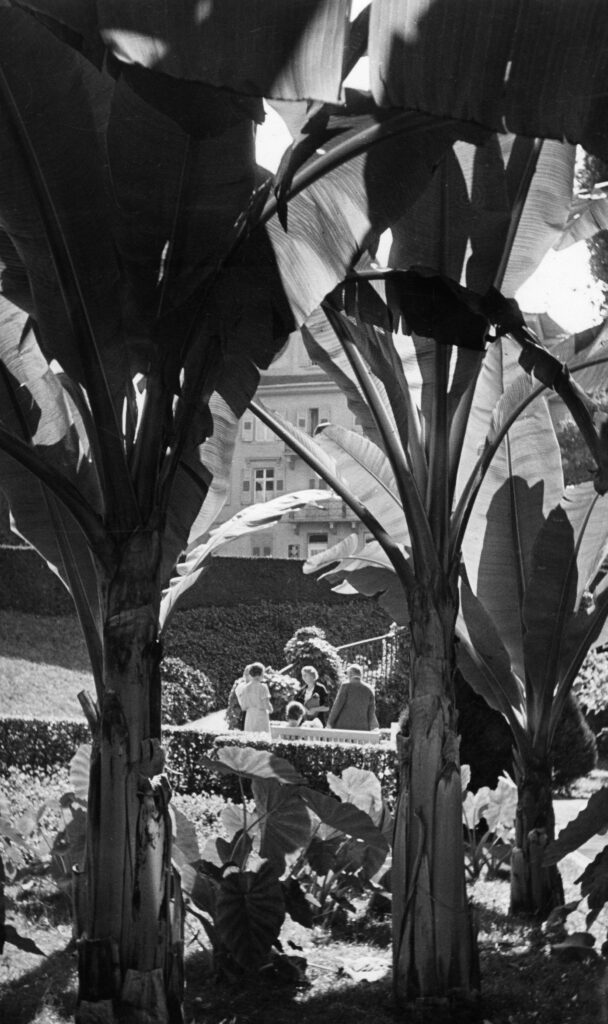David Bergen’s latest novel, Away from the Dead, begins with a small-scale personal story. In 1899, in the Ukrainian city of Ekaterinoslav (now Dnipro), twenty-two-year-old Julius Lehn, a bookish professor, meets eighteen-year-old Katka Martens, a bright, politically engaged student. He is an atheistic Jew; she grew up in a Mennonite colony. He is poor; her family is rich. These differences unite rather than divide them: “Their relationship was based on curiosity, and arguments about politics, and desire, and physical proximity.” They talk, they drink coffee, they flirt, they read Chekhov. Eventually they marry, first in a small private ceremony, then in a fancier service on the estate of Katka’s wealthy uncle, Heinrich Martens.
For three years, the couple live happily in a comfortable apartment provided by Uncle Heinrich: “Five rooms fully furnished, a view of the park below, and two servants whom Katka promptly dismissed because she didn’t want to participate in the subjection of the worker.” Then Katka begins coughing up blood. The Lehns travel to Badenweiler, a health resort and spa in Germany, where, coincidentally, Chekhov is also a patient: he and Katka die on the same day. “Dear Katka,” Julius writes mournfully on the journey home with her body, “I am fearfully unhappy. I am most at peace sitting and smoking in the hold at your side. Or standing at the railing looking out over the vast sea, with all its utter indifference to life and death.”
All that grief-stricken Julius wants now is to keep to himself in the flat above the small bookshop Uncle Heinrich procures for him: “In that first while, he took to sleeping with one of Katka’s shirts that still held her smell.” Then, less than a year later, the first Russian Revolution begins, with workers and peasants rising against their autocratic rulers. “The Tsar would fall,” it seems certain. But the tsar does not fall, and the tables are turned: “Now landowners hanged and shot the workers who had dared to revolt.”
Amid the turmoil, Julius finds himself a target for “ruffians at large,” even though he cares more about Tolstoy than about the tsar. “Let me read,” he thinks wistfully. “Let me sell my books. Leave me alone.” But for Julius, as for many others, being left alone is not an option. With steadily accumulating intensity, the novel portrays the price exacted from ordinary people — in freedom, flourishing, security, and even survival — by those with more money, power, or ideological certainty, including those who purport to be on the side of the oppressed.

Having repaired to the Badenweiler resort.
Ullstein Bild; Getty Images
When war breaks out again in 1914, Julius initially considers it “outside noise, events that were happening elsewhere.” He realizes his mistake when he is conscripted into the army. Julius goes off to the front, leaving behind Inna, a peasant woman who’d worked on the Martens estate until the family dismissed her for becoming pregnant by their entitled son, Wenig, whom she had loved —“or so she thought.” Inna and Julius had found unexpected tranquility raising her illegitimate child together, even naming her after Julius’s late wife. But now Inna is alone and vulnerable, unable to resist when the Martenses send her older brother, Sablin, to take her daughter away. Sablin knows the Martenses are powerful and persistent: if he doesn’t bring them little Katka, someone else will. When the child later dies from a fever, he can only tell Inna the news and hold her while she wails.
Sablin is not political; he has “no fixed ideas about the world, other than that everyone had an opinion about right and wrong, and that each army was convinced that it had the greatest moral reason for fighting.” After Heinrich’s oldest son is viciously beaten and hanged by a group of vengeful peasants, one of their ringleaders implores Sablin to join them: “It is your right. You have nothing. They have everything.” The peaceable Sablin stays behind. He wants only a patch of land to “till, and plant and harvest,” but circumstance thwarts his modest dream, which, like Julius’s, seems doomed to end in blood.
As the war drags on, factions proliferate: “These were Bolsheviks. These were anarchists, Makhno’s men. These were White Russians. These were Cossacks. These were green, these white, these red, these black.” These are distinctions without a difference to Sablin, who sees that each group rapes, plunders, and kills without care or consequence. For a time, he shelters from the violence by posing as a photographer, his camera “like a shield,” but eventually he abandons the sidelines and discovers that he, too, is capable of ruthless brutality. After the war, he attempts to store this ugly side of himself away in one of the “tiny drawers in his head.”
“I do believe we are trying to kill the Germans,” Julius writes to Inna during his time at the front, “though sometimes it is other Russians, or perhaps Turks, and once I heard there were Romanians about, though I believe we are with the Romanians.” His wry tone matches the novel’s depiction of the Great War as a tragicomic patchwork of errors and horrors. War is not a grand epic, observes Viktor Shklovsky, an officer to whom Julius is assigned as an attendant. Rather, it is “chaotic and incomprehensible,” though its “apparent lack of structure was a structure in itself,” not linear but “nonsensical, or circular.” To reflect the idea that war “wrote its own plot” with “no beginning or ending,” Shklovsky says he will compose his own reflection on the conflict as a journal and call it, in a nod to Laurence Sterne’s episodic classic, A Sentimental Journey.
Viktor Shklovsky really existed, and he really wrote this book; in his author’s note, Bergen calls A Sentimental Journey an “essential” source for Away from the Dead, describing its author as “humorous, light of touch, and aware of the absurdity of war.” That said, Bergen’s eleventh novel — which was longlisted for the Giller Prize — is too bleak to be humorous, and he offers no literary flourishes to soften or uplift the grim tale. Instead, his meticulous, understated prose is weighted with implicit grief at the pointless suffering of ordinary people who want only to “live quietly,” a lament as relevant for Ukraine’s present as for its past. The resulting narrative is stark and devastating. Julius’s description of War and Peace fits Bergen’s accomplishment: “So much emotion, but Tolstoy doesn’t overdo it, he just tells the story, and we feel everything.”
Rohan Maitzen teaches English literature at Dalhousie University.
Related Letters and Responses
@EllenMoody1 via Twitter

